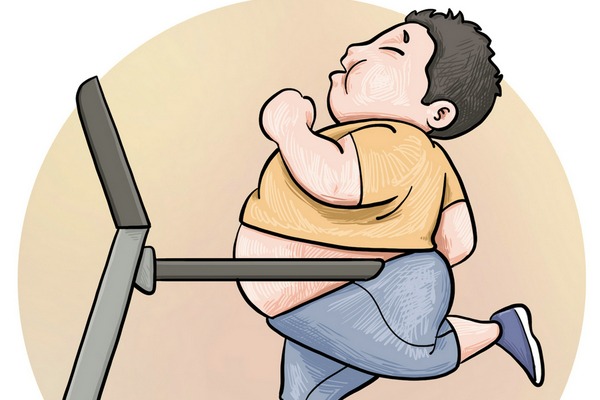
Jin Ding/China Daily
Obesity rates in China are rising rapidly, especially among young people, and experts are calling for greater awareness of healthy lifestyles and better treatment of the disease.
Obesity rates among adults more than doubled between 1990 and 2022, and quadrupled among children and adolescents, according to new research published in the medical journal The Lancet. The total number of people living with obesity has exceeded one billion worldwide, according to a Lancet analysis published ahead of World Obesity Day on March 4.
The growing burden of obesity is having a serious impact on China, where the proportion of adult women considered obese has jumped nearly fourfold, and the proportion of male adults who are obese has jumped 11-fold. According to the study, in 2022 this rate will be 7.8% for Chinese women and 8.9% for Chinese men.
Obesity is becoming more prevalent among young people in China. According to the same study, the obesity rate among girls in Japan rose from 0.6% in 1990 to 7.7% in 2022, and the obesity rate among boys rose from 1.3% to 15.2% in 2022.
Majid Ezzati, professor at Imperial College London and corresponding author of the study, said: “The obesity epidemic that was evident among adults in many parts of the world in 1990 has now increased significantly among school-age children and adolescents.'' It is very worrying that this is also reflected in this.”
“It is critical that we significantly improve the availability and affordability of healthy and nutritious food,” he added.
Tedros Adhanom Ghebreyesus, Director-General of the World Health Organization, said: “This new study highlights the importance of preventing and managing obesity from childhood to adulthood through diet, physical activity and appropriate care when needed. It highlights that.”
Improper diet, lack of exercise, and genetics all contribute to obesity, but China's top health authority, the National Health Commission, earlier this year found that unbalanced diet and eating habits, as well as improper He stated that infant feeding habits are the fundamental cause of obesity. to the state.
Professor Hu Jiajin of the Institute of Health Sciences, China Medical University, said that diet, exercise habits and other lifestyle choices are closely related to the risk of obesity.
For children, the mother's weight gain during pregnancy, regularly skipping breakfast, eating too much sugary food and drinks, lack of physical activity and lack of sleep can all increase the risk of obesity, she said. .
“To tackle obesity, it is important to pool and coordinate resources from all sectors of society,” Hu said.
Wang Yizhou, vice president of the internal medicine department and political advisor at Beijing Xiaotangshan Hospital, said that although the public's awareness of weight management is increasing, more efforts are needed to improve and develop a unified protocol for obesity diagnosis and treatment. Stated.
“I proposed establishing a national clinical diagnosis and treatment committee for obesity and coordinating sporadic obesity-related guidelines into a standard protocol,” said Wang. He spoke in an interview with China Central Television at the annual gathering. Beijing, China's highest legislative and political advisory body.
He added that hospitals should build multidisciplinary centers that cover the areas of nutrition, exercise psychology, and drug use for obesity, similar to diabetes centers in many regions.


